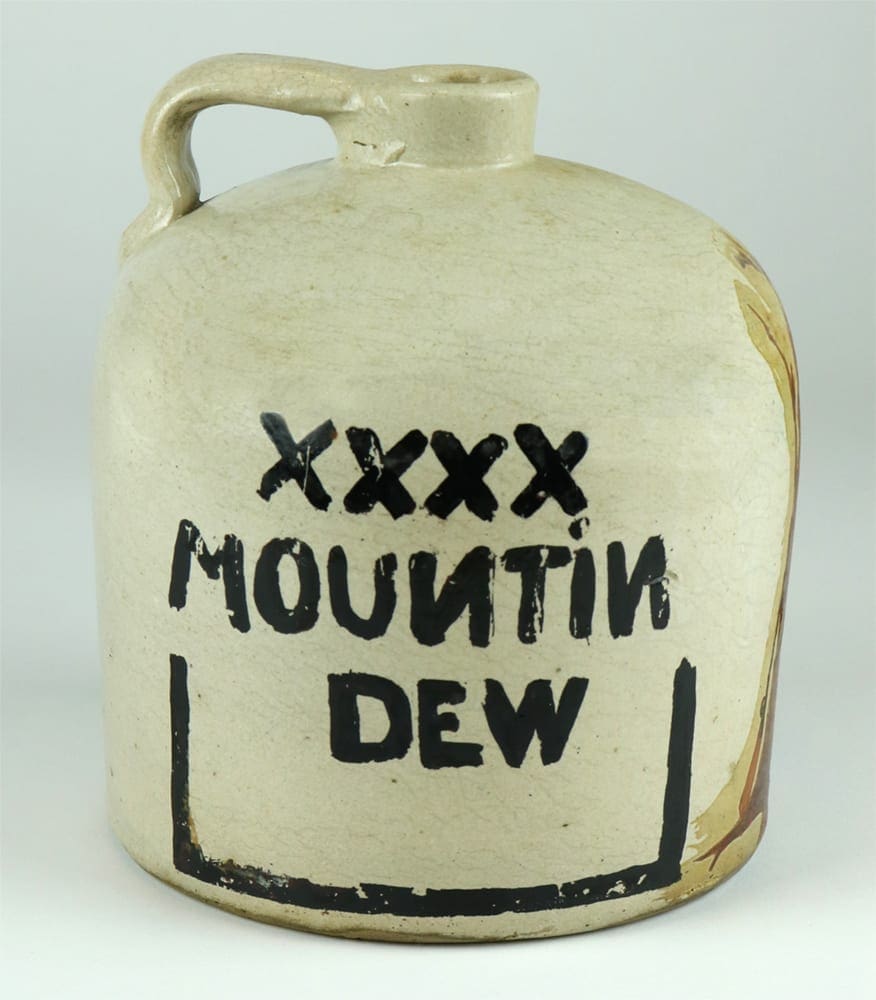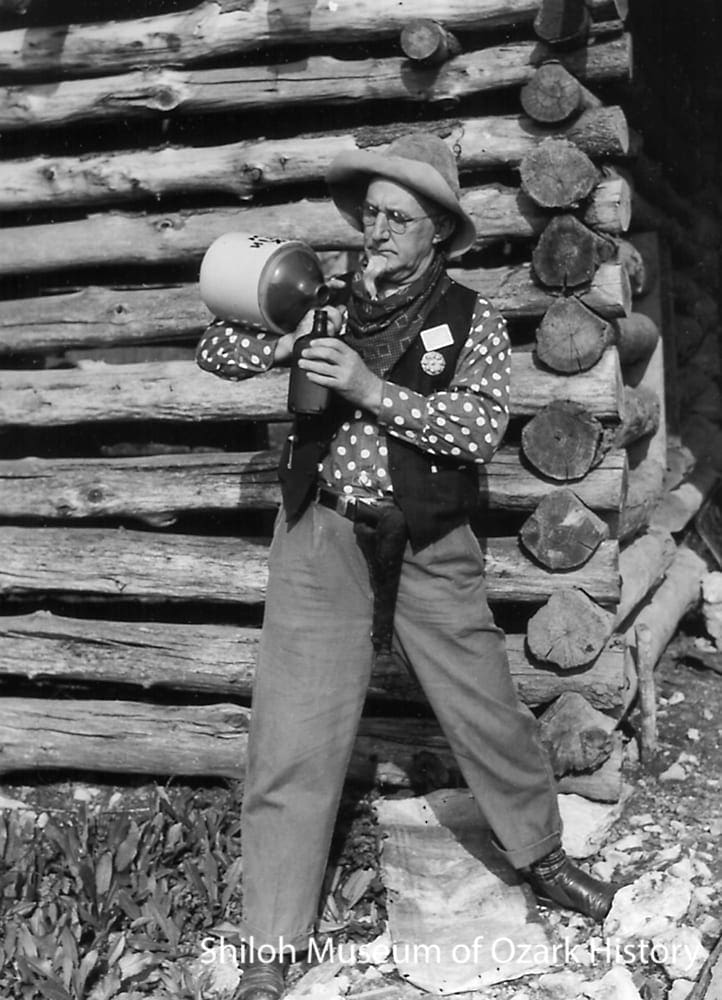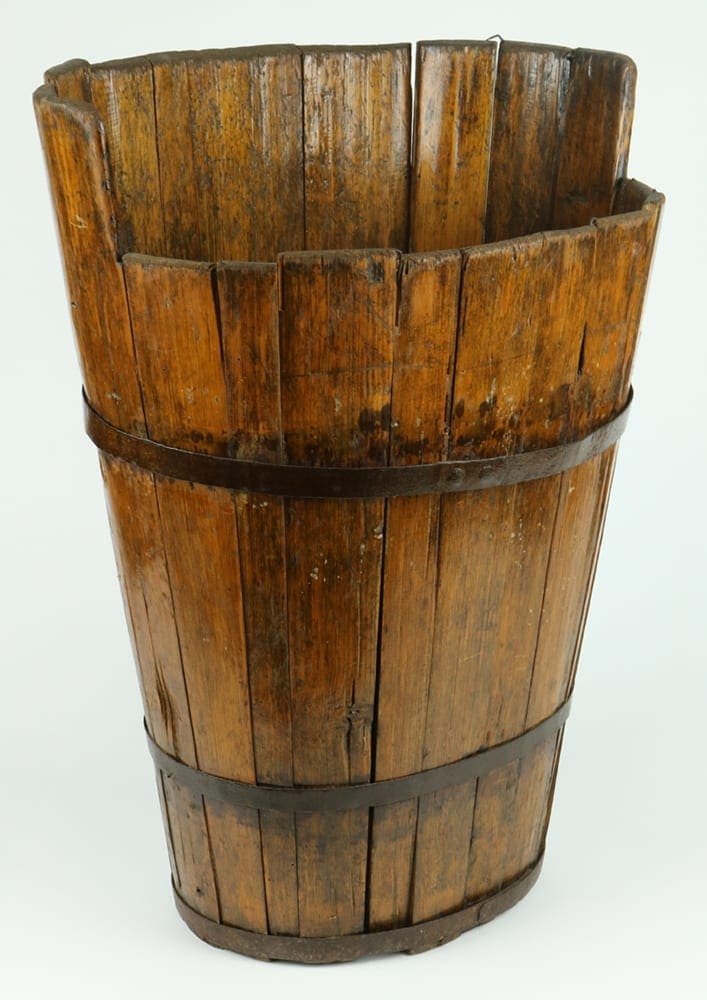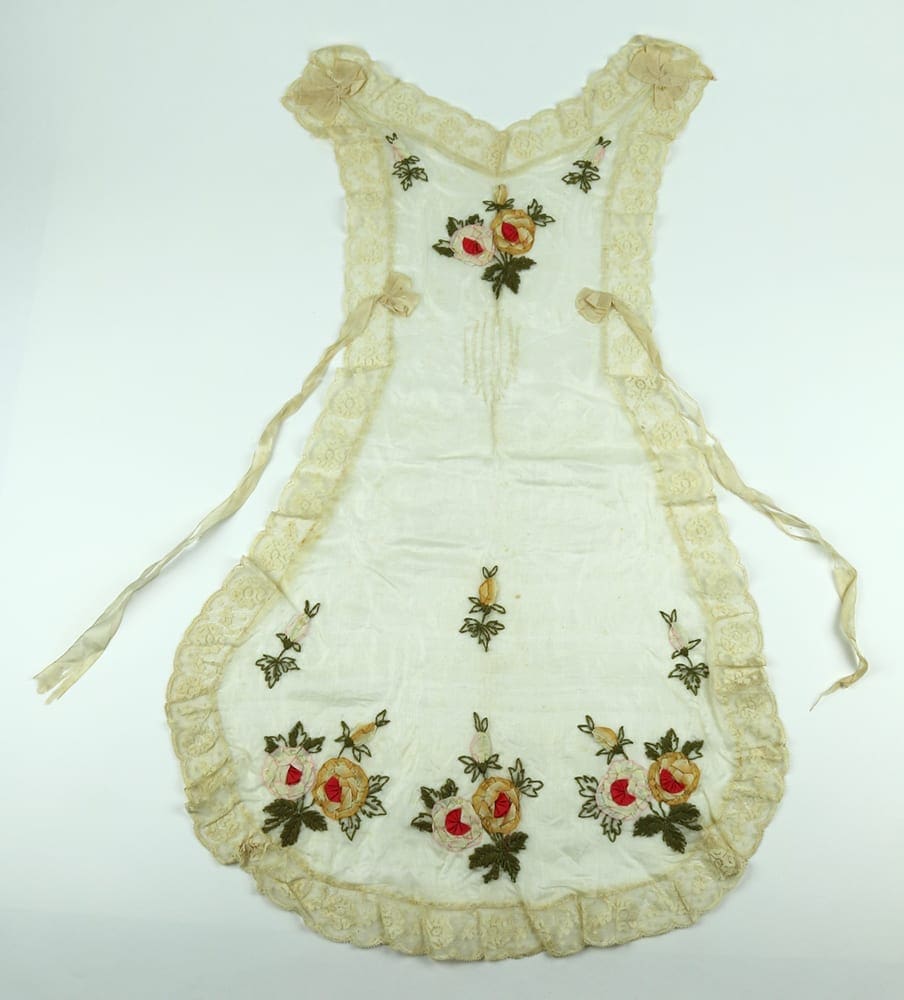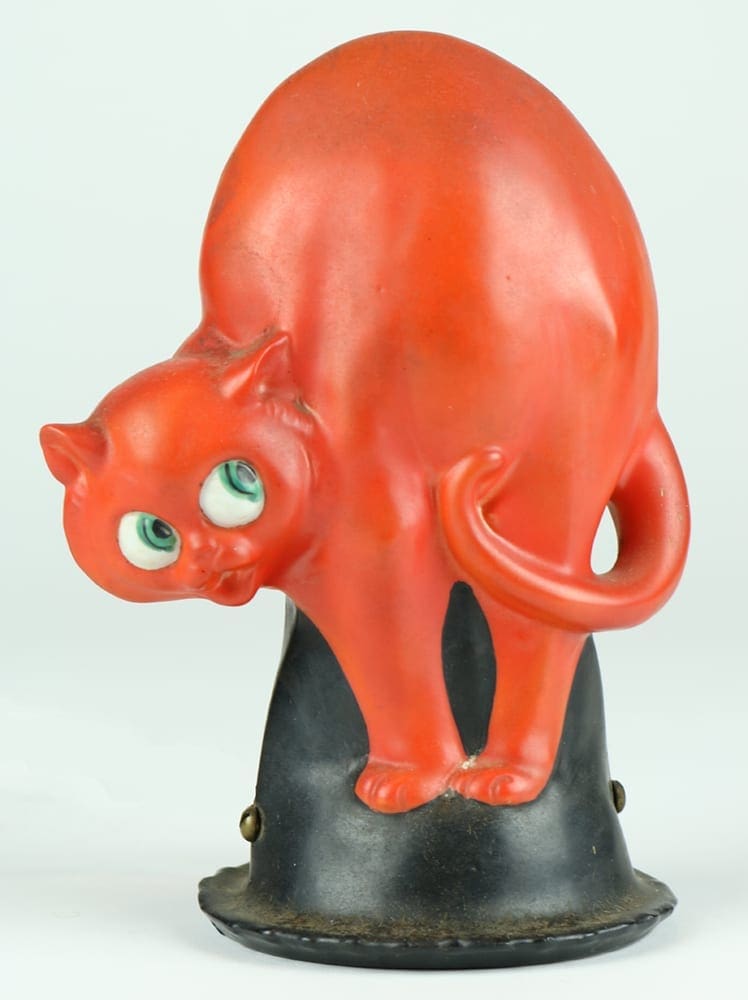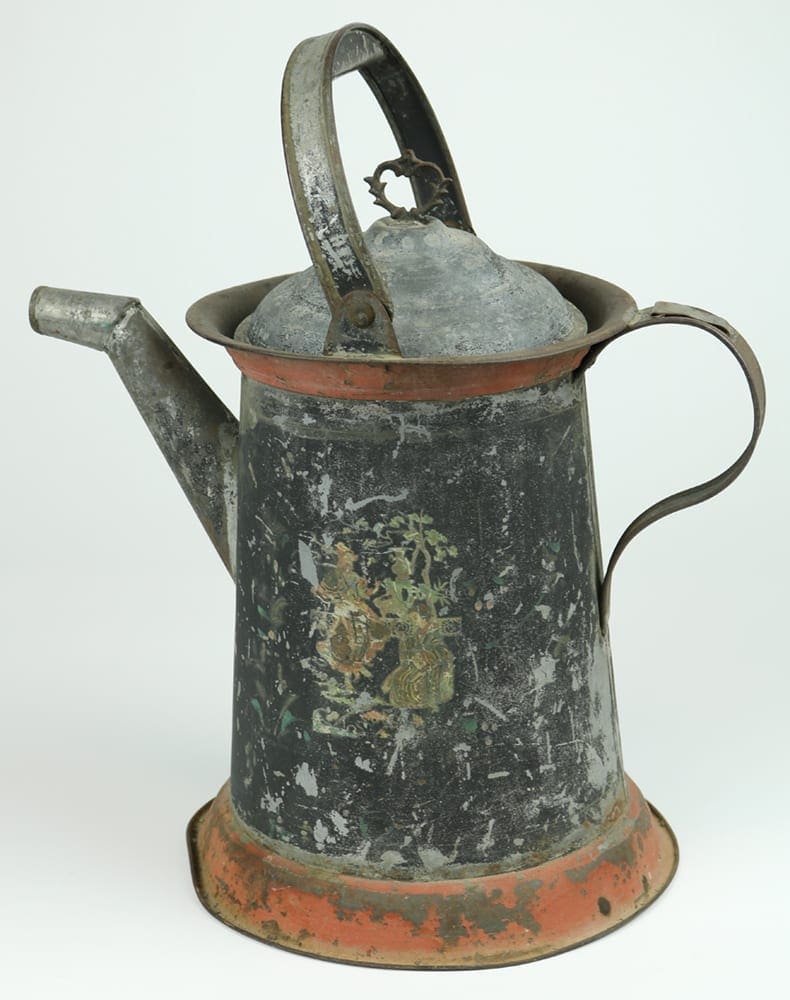“Mountin Dew” Jug
This ceramic jug was used in the 1940s and 1950s by Dupree Deaver, a member of Springdale’s Skunk Hollar Hillbilly Band. Deaver portrayed a moonshine-swilling character named “Pappy.”
The Skunk Hollar Hillbilly Band, which was founded about 1938 by P. W. “Doc” Boone, dressed up in stereotypical hillbilly garb and performed traditional mountain music interspersed with short comedy routines. Along with Boone, the original band members were Austin Cravens, Scott Price, and Virginia Lee Clarkson. All were talented musicians. Boone sang and played harmonica; Cravens, saxophone and jaw harp; Price, guitar; and Clarkson, piano and accordian. They were later joined by Joe Robinson, a left-handed banjo player, and Dupree Deaver, who blew the moonshine jug.
Some others who were part of the band at one time or another were Yvonne Ballew and Mildred Clark, accordian; Harold Graham, Kendle Sigmon, and Ed Terry, guitar; Orville Fields, Dale Sigmon, and Doyle Clark, fiddle; Vera Jean Cummings, piano, and Billy Eden, mandolin. Roger Sanders played a homemade gourd kazoo.
The Skunk Hollar Band became popular throughout the region, as they traveled with a caravan of Springdale citizens who toured the area each year to advertise the Rodeo of the Ozarks. The group eventually disbanded in the late 1960s.
Skunk Hollar Hillbilly Band, 1944. Standing, from left: Scott Price, unidentified. Seated, from left: Joe Robinson, unidentified, Dupree Deaver, Austin Cravens, unidentified, Percy Boone. Howard Clark, photographer/Caroline Price Clark Collection (S-2002-72-1216)

